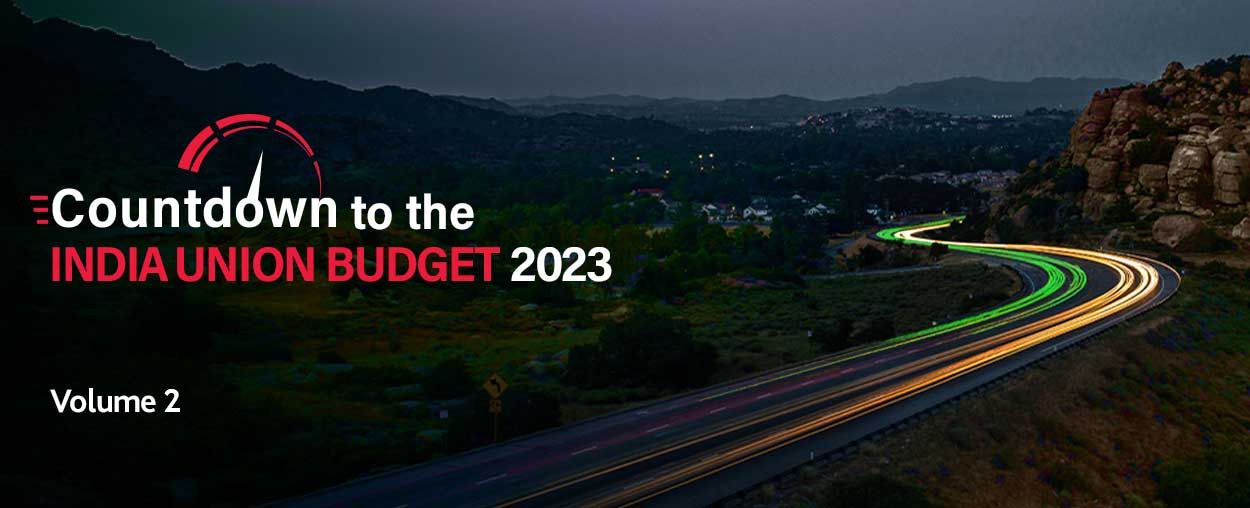As the run-up to the India Union Budget 2023 begins, BDO India is pleased to share key expectations from this year’s Budget announcements, in our Pre Budget campaign: Countdown to the India Union Budget 2023(a two-volume series)
Union Budget 2023 is the present Government’s final full budget before the 2024 General Elections. Over the last few years, the Government has taken various steps towards simplification and better administration of the taxation framework in India.
Following the same path, the Individual taxpayers expect the Government to introduce necessary steps to stabilise the Indian Economy as the world faces recessionary trends, leading to increased money flow in the market and higher spending power in their hands. This could be achieved by introducing certain changes in India’s tax regime.
Here are a few expectations from individual taxpayers from Budget 2023:
-
Change in old taxation regime and a rejig of the tax slabs & rates
The New Tax Regime was introduced vide the Union Budget in 2020. Despite two years of return filing seasons over, the Old Tax Regime beats the New Tax Regime in terms of the adoption rate by individuals.
There has been no change in the slabs and tax rates under the old tax regime. With rising costs of living and interest rates on loans, a relaxation in the income tax rates is much warranted.
The Government may consider increasing the basic threshold of INR 2.5 lakhs to INR 5 lakhs and also the highest tax rate income threshold from INR 10 lakhs to INR 20 lakhs. Additionally, a reduction in the highest tax rate from 30% to 25%, to bring it on par with other developing countries like Brazil, Nigeria, Egypt etc.
-
Increase in Standard Deduction
Standard Deduction was introduced in 2018 at INR 40,000 removing deductions for transport allowance and medical reimbursement. In 2019, the amount of standard deduction was increased to INR 50,000. An increase in this limit was expected in previous budgets as well but did not happen. To accommodate the rising cost of living it is expected that the Government may increase this limit to INR 75,000.
-
Capital Gains taxation to be simplified and rationalised
Capital gains taxation has long been very complicated for individual taxpayers. The Government may look to simplify, rationalise and harmonise the tenure and category-based classification done in the case of capital assets, Short-Term Capital Gains (STCG) and Long-Term Capital Gains (LTCG).
Further, there are varied tax rates for the taxation of capital gains from various types of assets. To complicate it further, the rates of taxation for some types of assets are different for non-resident taxpayers when compared with resident taxpayers.
In this Budget, it is expected that the Government introduces parity for varied categories of assets in terms of tax rates and holding periods.
-
Increase in deduction for interest income
Deduction in respect of interest on Savings Accounts with a bank, post office or cooperative society engaged in the business of banking is allowed under the old income tax regime.
The deduction limit has remained as is since its introduction. The Government may consider enhancing the limit from INR 10,000 to INR 25,000. Additionally, interest earned from Fixed Deposits may also be made eligible for this deduction.
-
COVID-19 related relief
- The Finance Act 2022 relaxed the taxation of the amount received on the account of death by COVID-19, subject to the fulfilment of certain conditions. One of the conditions is that the amount should be received within 12 months from the date of death. However, on account of the limited workforce available at the disposal of the employer and the work from home model, there have been instances where the amount is received by the deceased family members beyond a period of 12 months. Hence, it is expected that this period of 12 months may be extended to 24 months.
- COVID-19 may be included in the list of specified diseases eligible for deduction under section 80DDB of the Income-tax Act, 1961 (IT Act), which prescribes deduction in respect of health care expenditure.
-
Deductions for investment / expenses
-
Increase in limit of deduction under Section 80C of IT Act (investment- based deduction available to individual taxpayers)
For long now, the limit of deduction under Section 80C of the IT Act has been constant at INR 150,000, it is expected to increase the same to accommodate the amount contributed towards the major retirement funding schemes such as Employee Provident Fund, National Pension Scheme and Public Provident Fund. Further, the rising costs for education are also making a dent in an individual’s pocket. Deduction towards expenses incurred on fees for children’s education is allowed to be claimed, however only under the overall limit of INR 1.5 lakhs under section 80C of the Act. Most certainly, this limit of INR 1.5 lakhs is exhausted with the various retirement fund schemes and an individual is not able to claim the deduction against children’s education fees.Hence, the Government may consider an increase in the overall limit of exemption under Section 80C to accommodate the varied bucket of investment and expenditure-related deductions available under this section.
-
Increase in tax exemption limit for health insurance
Post COVID-19 and with increasing costs of medical expenditure, it has become vital to cover expected or unexpected medical expenses a taxpayer may have to incur. As it goes, with this increased cost of medical treatment the premium for insurance is also on a rise with each passing day. Hence, the Government may increase the current medical insurance premium deduction from INR 25,000/INR 50,000 to INR 50,000/INR 75,000. -
Deduction in respect of purchase of Electric Vehicle (EV)
Currently, interest up to INR 150,000 on borrowing for the purchase of an Electric Vehicle is allowed to an individual as a deduction under section 80EEB of the IT Act provided the loan is availed on or before 31 March 2023. It is expected that this time limit may be extended by at least two years, i.e., until March 2025. The Government could consider introducing a deduction for purchase cost in cases where the EV is bought without a loan or upon repayment of the principal amount.
-
-
TDS on sale of immovable properties
Gains derived by non-residents from the sale of immovable properties in India are currently subject to TDS under section 195 of the IT Act. Thereby, the buyer is required to obtain TAN, deduct & remit TDS and file withholding tax returns in Form 27Q. To remove hardships faced by individual buyers, a mechanism similar to Section 194-IA of the Act for a deduction, remittance and filing of TDS statements can be introduced for individual buyers on the purchase of immovable properties from non-residents.
Conclusion
India and the rest of the world await the Finance Minister’s speech on 1 February 2023 which may focus on significant direct and indirect tax policy changes to give India a head start against the recessionary predictions. While the list of expectations on the personal tax front is long, the Government will need to consider balancing between the expectations vs GDP growth and tax buoyancy.
We will be analysing the budget proposals as they are announced on 1 February 2023.
Follow our social media handles for LIVE updates on #BUDGETwithBDO

